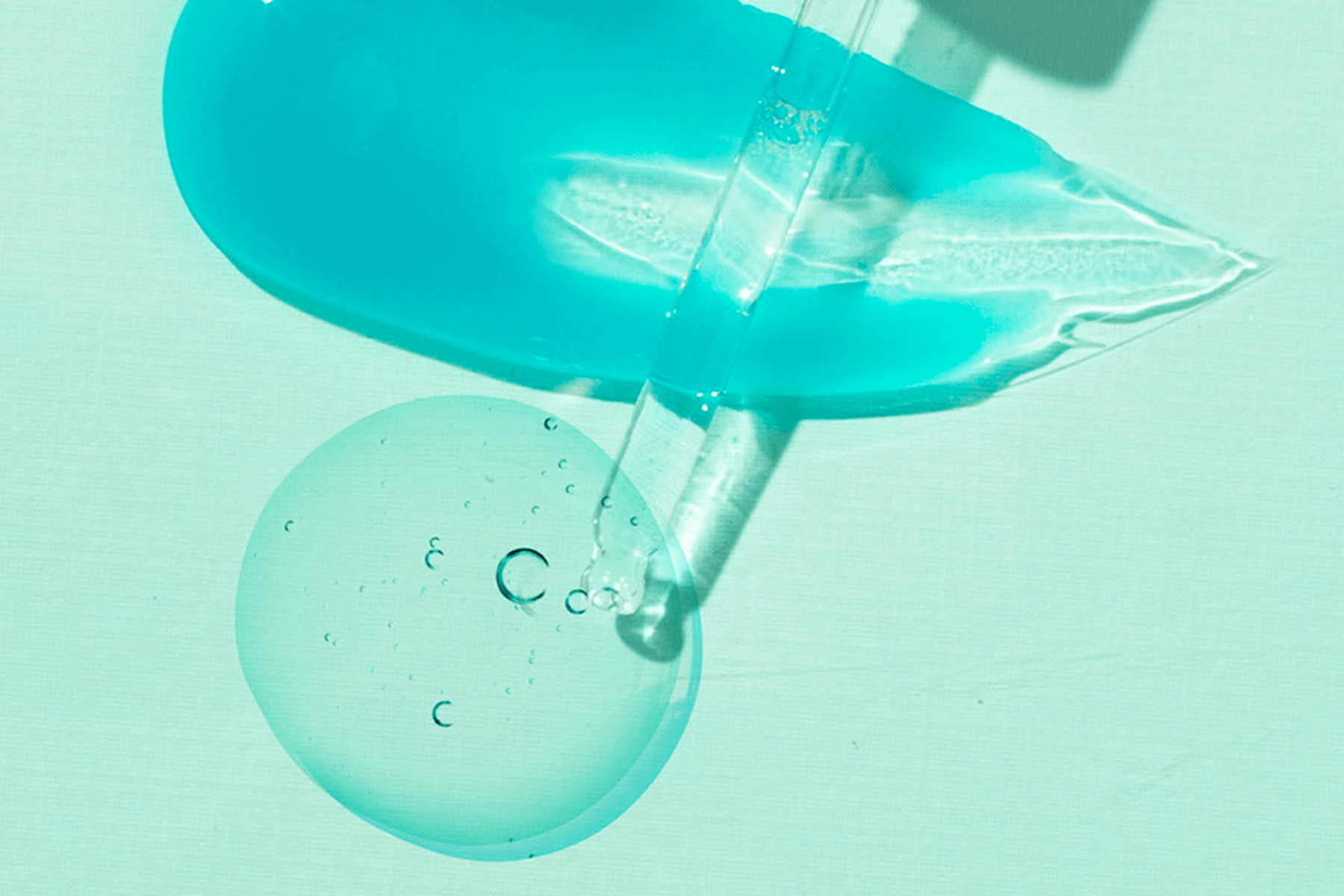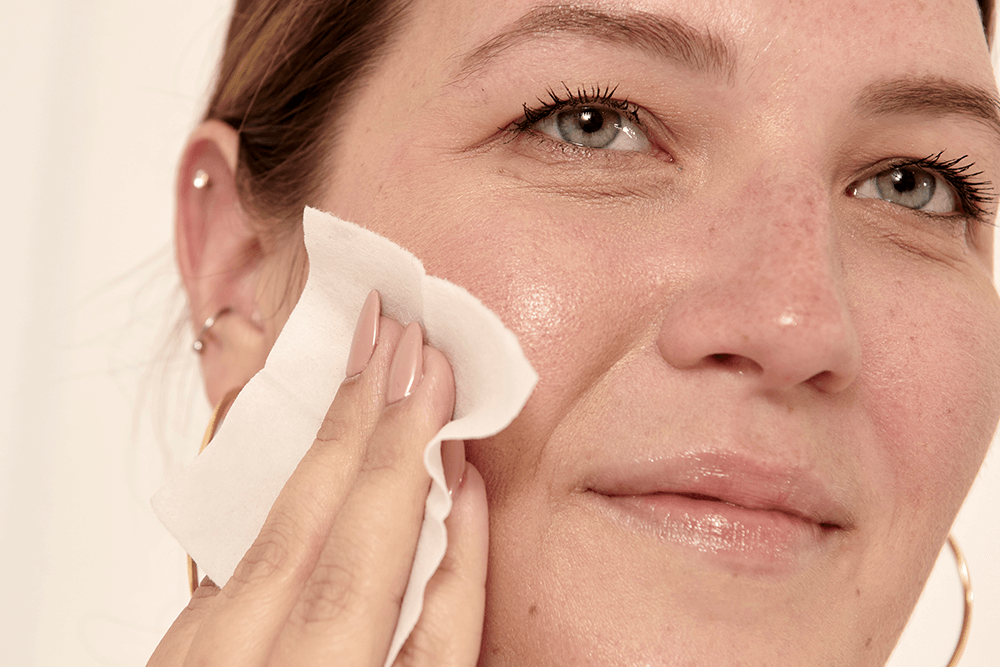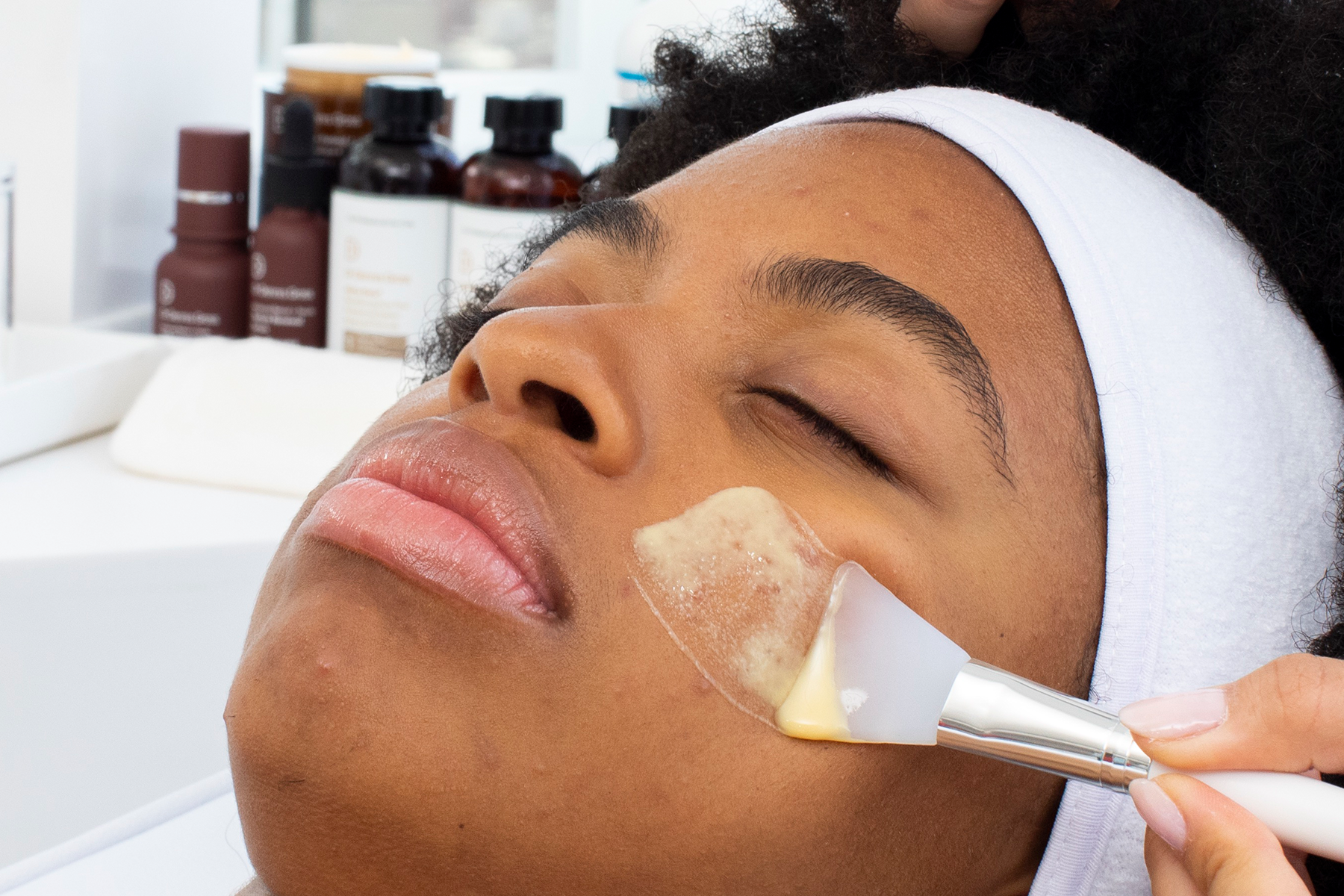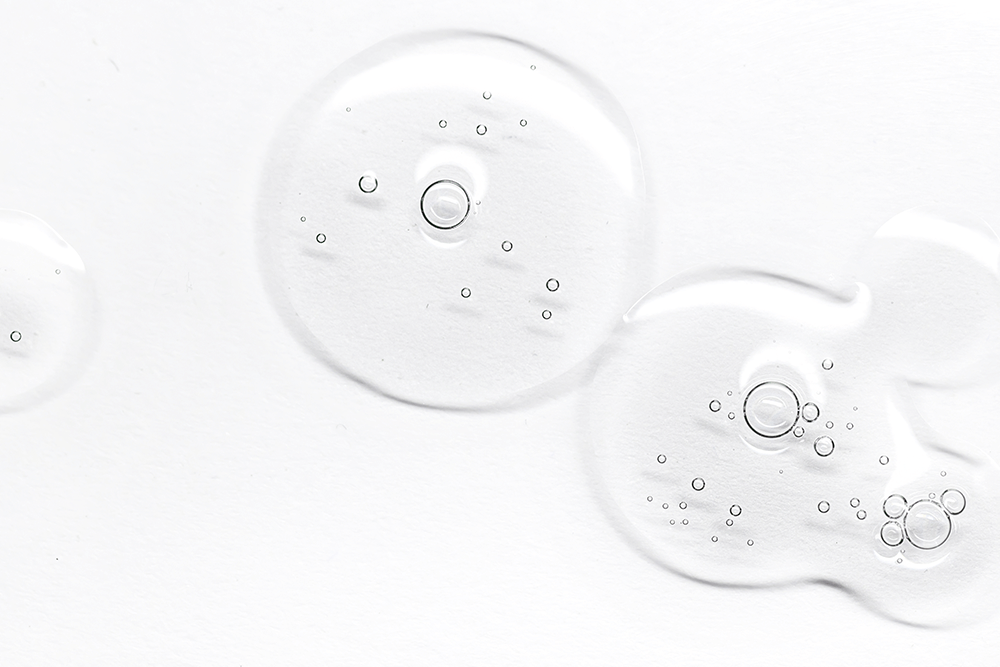The+Source
Hyaluronic acid may be the most skin-friendly ingredient ever to have made it into a product. More universally beloved than a puppy pile-on (really!), hyaluronic acid is moisturizing magic. If you’re not already including it in your daily skincare routine, you’re doing yourself a disservice. Need more convincing? Read on to discover why hyper-hydrating hyaluronic acid deserves a place in your regular regimen.
What is hyaluronic acid?
Unlike what its name would imply, hyaluronic acid isn’t an acid (at least in the typical sense). It’s actually a glycosaminoglycan (a long way of saying “sugar molecule”) that’s naturally present in your body’s connective tissue. A humectant is an ingredient that pulls moisture from the air into skin (as opposed to simply sealing in the moisture already present in the tissue). Hyaluronic acid is a humectant on steroids. Almost any time hyaluronic acid is mentioned, you’ll hear “and it can hold up to 1,000 times its weight in water” in the same breath. So aside from its inherent moisturizing properties, hyaluronic acid goes the extra mile once it’s pressed into service.
What hyaluronic acid does for your skin
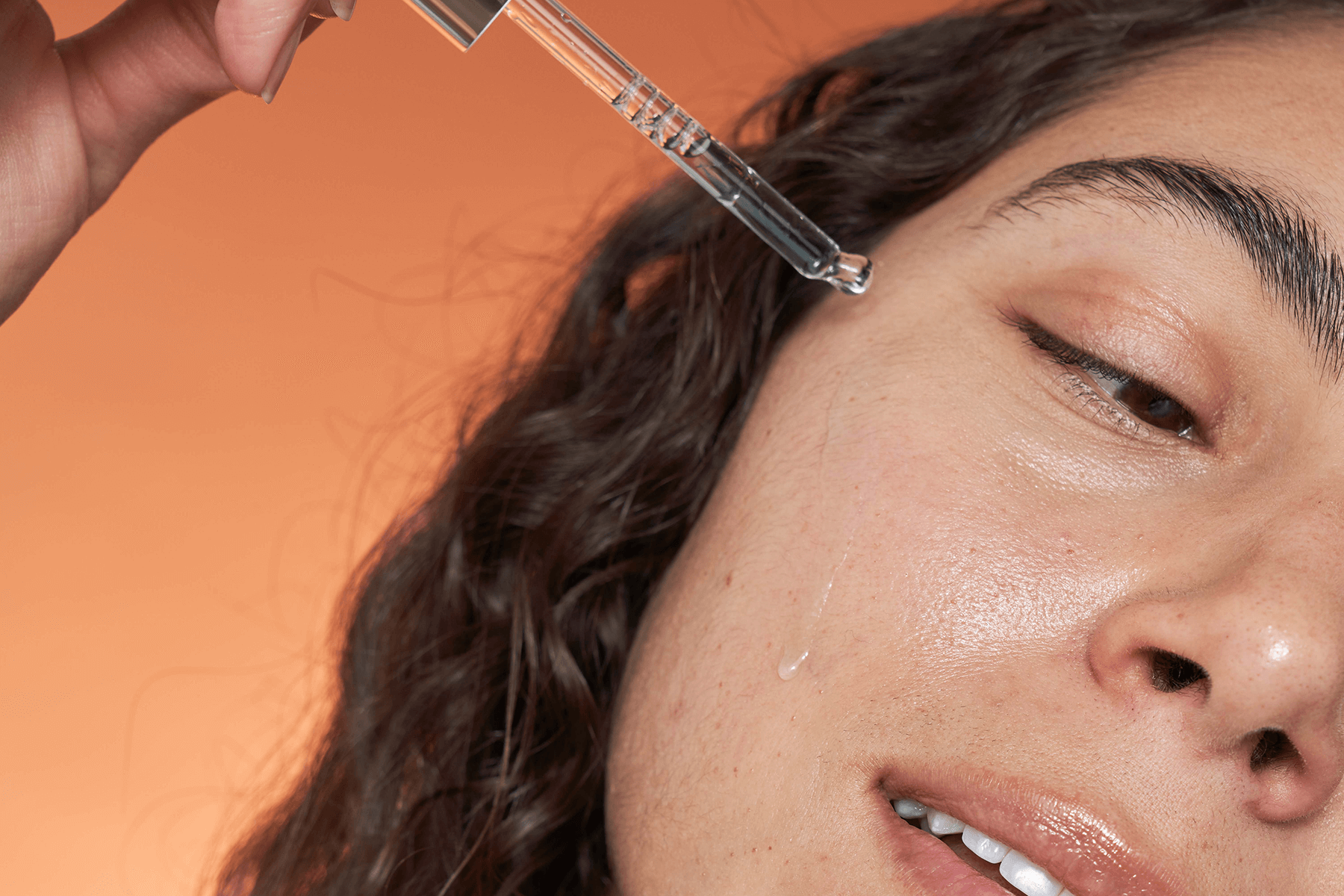
When skin contains a lot of water, it appears nice and plump. Its surface will be smooth and springy. It feels soft and supple to the touch. These are all admirable qualities and ones worth cultivating. When skin doesn’t have enough water, well, picture a dry, cracked lakebed in a region plagued by drought. The lakebed is your face. Your skincare goal should be to keep the water in skin from evaporating. (This is technically called transepidermal water loss or TEWL.) Hyaluronic acid helps stave off TEWL, which is something everyone can benefit from — no matter their age, ethnicity, gender, or skin type.
Benefits of hyaluronic acid
As mentioned above, one of the best qualities of hyaluronic acid is its ability to prevent TEWL. Not only will hyaluronic acid stop water from leaving your body, it will also pull water in from the surrounding air to keep the hydration party going. (Pro tip: Give your hyaluronic acid a little extra to work with by applying your serums and creams with slightly damp fingertips.) One more reason to love it: Hyaluronic acid is quick to absorb into skin, so you don’t have to sit around waiting for its visible moisturizing impacts (read: fewer fine lines and wrinkles).
Potential side effects of hyaluronic acid
Hyaluronic acid is that person who gets along with everyone, crossing cliques with ease. No matter what other skincare ingredients you apply — even the ones like retinol or vitamin C that can make skin a touch reactive — hyaluronic acid is still OK to use at the same time. It won’t irritate your complexion or neutralize the efficacy of another ingredient. The only time you have to worry is if the hyaluronic acid in your product has an extremely low molecular weight. For reasons too complex to get into here, hyaluronic acid with a low molecular weight penetrates skin in a detrimental way. However, cosmetic chemists know all about this danger and ensure that the products they formulate is made with hyaluronic acid large enough not to be hazard. The molecular size of your hyaluronic acid would only be an issue if you were making your own hyaluronic acid products. But if you’re not a cosmetic chemist, why would you be doing this in the first place? (Seriously.)
Who should use hyaluronic acid?
You really can’t go wrong with hyaluronic acid, no matter what type of skin you’re blessed with. However, as we age, we produce less and less hyaluronic acid naturally. This means skin has an even greater tendency toward dehydration. But even if you’re a spring chicken — who happens to have dry skin — you’ll appreciate the benefits of adding hyaluronic acid to your skincare routine. One common-sense caveat: If you have eczema, rosacea, or any other highly reactive skin condition, you should patch test a small area first, to be sure hyaluronic acid doesn’t provoke an angry outcome.
Who should not use hyaluronic acid?
Because topical hyaluronic acid is nonirritating and doesn’t typically trigger an allergic response, it should be fine for anyone to use (even those who are pregnant or nursing). Of course, the giant caveat here is that if your skin is the extremely reactive type (either due to eczema, rosacea, psoriasis, or something else), patch test a small area first, to ensure hyaluronic acid is safe for you.
Build a skincare routine around hyaluronic acid
Hyaluronic acid is in everything from eye creams to skin serums, in addition to the more traditional face moisturizers. Whether you opt for a completely hyaluronic acid-focused routine or choose to cherry-pick your hyaluronic acid options, you can easily integrate hyaluronic acid into your daily skincare regimen.
Cleanser: Unlike other makeup-melting balms, Dr. Dennis Gross Hyaluronic Marine Meltaway Cleanser is oil-free. It still dissolves even waterproof cosmetics gently, doesn’t require rinsing, and contains hyaluronic acid to reduce the appearance of surface lines instantly.
Serum: When your complexion needs an extra drink of water, reach for Dr. Dennis Gross Hyaluronic Marine Hydration Booster. It saturates skin with hyaluronic acid, along with marine algae, which is rich in the amino acids and B vitamins necessary to help increase the tissue’s elasticity and moisture levels.
Moisturizer: Even the breakout-prone can benefit from the hydration associated with hyaluronic acid. Dr. Dennis Gross Hyaluronic Marine Oil-Free Moisture Cushion is a hypoallergenic gel-cream that quickly plumps parched skin without making it shiny or greasy.
Treatment: Once a week, give your complexion an intense hydration sesh with the Dr. Dennis Gross Hyaluronic Marine Hydrating Modeling Mask. It cools, calms, and soothes, delivering an immediate radiance upon removal.
Eye cream: If dehydration and puffiness are plaguing your eye area, you need Dr. Dennis Gross Hyaluronic Marine Dew It Right Eye Gel. Loaded with hyaluronic acid, it’s been proven to moisturize for up to 72 hours straight.
Lip care: With some of the thinnest skin on the body, lips need TLC, too. Help reduce chapping and fine lines with the hyaluronic acid-heavy Dr. Dennis Gross Hyaluronic Marine Collagen Lip Cushion. It nourishes and repairs dry, cracked kissers.
What about injectable hyaluronic acid?

The moisturizing molecule is also a popular dermal filler. In that situation, the hyaluronic acid used is a gel-like substance that your dermatologist injects into areas that have lost volume, such as the lips, cheeks, under eyes, nasolabial folds, or backs of the hands. While the product itself will add immediate fullness, since it also attracts water, injected hyaluronic acid will create additional plumpness, beyond its initial effects.
Because hyaluronic acid is something the body produces naturally, injectable forms of the molecule don’t usually cause irritation, making it a nearly universally tolerated filler. That said, the actual process of injecting anything into the skin can sometimes result in short-term bruising or swelling. And fillers are never recommended for anyone
